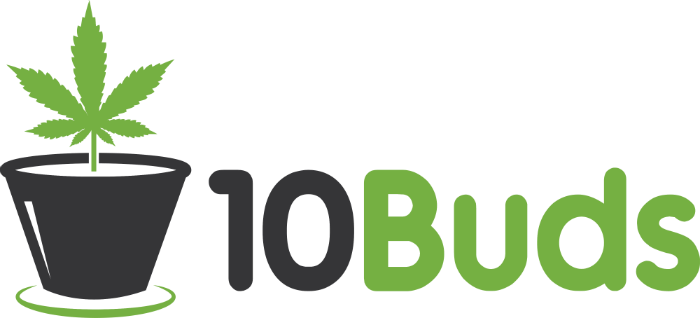Using Weed for a Good Night’s Sleep
Certain strains of marijuana show promise as treatment options for insomnia and other sleep disorders.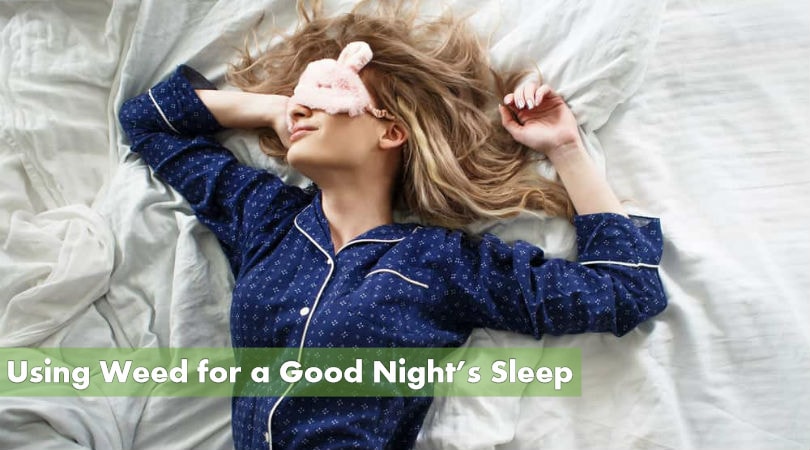 Insomnia and other sleep disorders are alarmingly common, affecting millions of people worldwide. Could cannabis be a sleep-enhancing solution? Science appears to say yes! With marijuana becoming widely recognized for its medicinal potential, research about the connection between cannabis and healthy sleep has been increasing. We do know that all strains of weed do not have the same effects on sleep. Finding a strain with an optimal balance of chemical compounds such as CBD, THC, and CBN is key in using cannabis to get a better night’s sleep.
Insomnia and other sleep disorders are alarmingly common, affecting millions of people worldwide. Could cannabis be a sleep-enhancing solution? Science appears to say yes! With marijuana becoming widely recognized for its medicinal potential, research about the connection between cannabis and healthy sleep has been increasing. We do know that all strains of weed do not have the same effects on sleep. Finding a strain with an optimal balance of chemical compounds such as CBD, THC, and CBN is key in using cannabis to get a better night’s sleep.
Marijuana and Sleep
The connection between marijuana and sleeping
Marijuana has been used as a sleep aid for hundreds of years and remains a very popular one today, even in places where it has still not been fully legalized. Weed contains a variety of naturally occurring chemical compounds that work with your brain and body to do everything from reduce anxiety and pain, to induce and prolong sleep. A 2011 study of marijuana users in two Southern California communities found that cannabis users experienced a reduction in the time it took to fall asleep. The average reduction was 30 minutes for people who typically reported difficulty falling asleep. The effect was also tested on a group who reported no known sleep difficulty. This group reported falling asleep an average of 15 minutes faster than usual.
Q: Does weed help you sleep?
A: A number of recent studies, as well as centuries of anecdotal evidence, show that yes, marijuana can be a very effective sleep aid. However, some strains will be much more effective than others.
Why does cannabis make you tired?
There are actually a variety of chemical compounds in cannabis that can help you feel tired enough to sleep. Most of these compounds (not to mention their effects on sleep!) haven’t even been studied yet in full detail. However, researchers have pinpointed several chemicals in weed that contribute to sleepiness. These primarily fall into two categories: cannabinoids and terpenes.
Scientists have identified over 100 of the chemical compounds known as cannabinoids, and they’ve been found to have all sorts of mental and physical effects on the human body. The three best-known cannabinoids in weed are THC, CBD, and CBN, which have all been shown to have positive effects on sleep. Human bodies actually make their own version of cannabinoids – known as the endocannabinoid system. This system plays a role in how our bodies regulate a variety of things, from appetite to pain perception. This system readily links up with and processes the cannabinoids in weed.
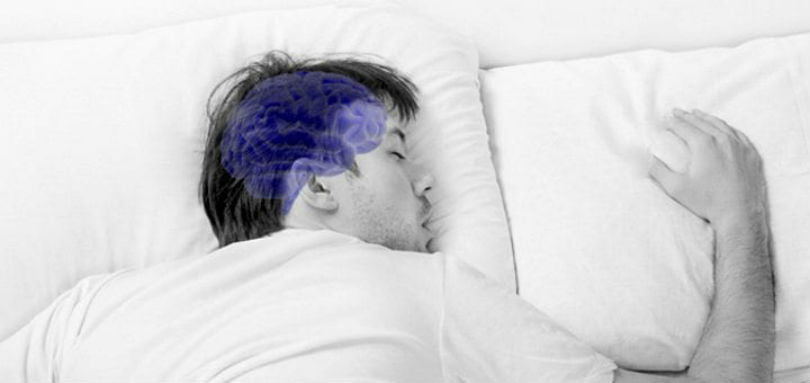
There are actually a variety of chemical compounds in cannabis that can help you feel tired enough to sleep.
Terpenes are aromatic molecules that appear in many different types of plants, herbs, flowers, and fruits. They impart scents, flavors, and other qualities. Research suggests that specific combinations of terpenes enhance the sleep-aiding effects of cannabinoids like THC and CBD. A few of the terpenes found in marijuana can help you feel tired include:
● Linalool, which has been shown to help alleviate symptoms of anxiety and depression. Linalool is also one of the main components of lavender, and it works by increasing levels of a hormone called adenosine, which has a sedative effect.
● Limonene, a terpene also found in citrus plants, appears to increase serotonin levels, easing symptoms of stress, anxiety, and depression, all of which can keep you up at night.
● Myrcene and terpineol are other notable terpenes with a sedative effect.
Q: Why does weed make you tired?
A: A variety of chemical compounds in weed affect levels of various hormones in the body and brain. Many of these combinations cause sleep-aiding effects, from drowsiness and relaxed muscles to reduced levels of anxiety and chronic pain.
For some, weed is the only thing that works
Many people cite cannabis as the only thing that actually alleviates their insomnia. Sometimes this is due to weed being the only effective relief against chronic pain, nightmares, anxiety, or muscle spasms. It is possible to become reliant on cannabis for sleep. While it’s not necessarily a physically addictive substance, it is possible to become psychologically dependent on marijuana – especially if you are attached to the relief it can provide from sleep disorders or other chronic conditions. Regular users of cannabis for sleep disorders do often report a return of insomnia symptoms when use is discontinued.

For some, weed is the only thing that works.
Marijuana for Insomnia
Many non-medical users of marijuana report insomnia as a primary reason for using it. A 2018 study conducted by the University of Michigan confirms that cannabis can indeed ease symptoms of insomnia. Not only do many strains induce sleepiness, but marijuana can also have a profound effect on the underlying causes of insomnia, such as chronic pain, anxiety, nightmares, PTSD, and more.
In addition to disrupted sleep cycles and trouble falling asleep, insomnia sufferers also tend to experience daytime tiredness, difficulty concentrating, headaches, and symptoms of anxiety and depression. Fortunately, cannabis can also help with these symptoms.
According to the study, vaporizing appears to be the most effective cannabis delivery method with the fewest negative side effects. Smoking or vaporizing marijuana carries the benefit of it kicking in quickly, though some users may wake up later in the night, needing another dose to fall back to sleep. Edibles are another option. However, they take anywhere from 30 minutes to an hour or two to kick in fully. But they do stay in your system longer, which may help you get in a longer stretch of quality sleep.
Weed does have a few potential side effects, damage to the lungs from smoking or vaporizing, red eyes, dry mouth, increased hunger, and if you use weed containing THC, a “high” feeling and next-day grogginess. But, by comparison, these are generally less severe than the potential side effects of regularly using pharmaceutical sleeping medications.
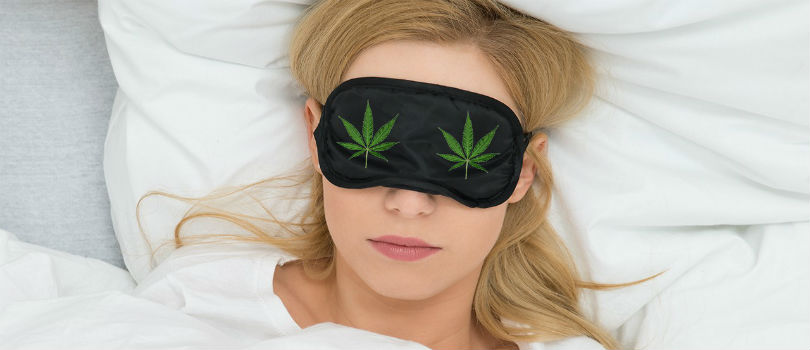
A study confirms that cannabis can indeed ease symptoms of insomnia.
Medical marijuana for insomnia
At the time of this writing, insomnia is not on the list of eligible conditions for a medical marijuana prescription in any U.S. state. However, the legality and regulation of medical marijuana are evolving and availability is increasing. The list of eligible conditions varies by state but has been slowly growing in most places. Some eligible conditions (such as PTSD or chronic pain) often go hand in hand with insomnia or other sleep disorders, so it’s possible to gain some sleep-related relief if you have a prescription for a different condition.
Q: Can you get medical marijuana for sleep disorders like insomnia?
A: In the United States, insomnia is not a qualifying condition for medical marijuana (though it is in Canada). In 34 U.S. states, some other conditions that can contribute to insomnia or other sleep disorders do qualify, such as PTSD and chronic pain.
Who can get medical marijuana for sleep disorders?
Adult residents of 34 U.S. States (and Puerto Rico) can obtain a legal prescription for medical marijuana. In the United States, no states currently consider insomnia an eligible condition for a medical marijuana prescription. Four potential exceptions are California, Oklahoma, Massachusetts, and West Virginia, where prescriptions for medical marijuana can be written at the sole discretion of your physician. However, if another condition (such as PTSD or chronic pain) is an underlying cause of your sleep problems, you may find your sleep positively impacted if you are prescribed medical marijuana for it. Most medical marijuana-friendly states list some variation of chronic pain as an eligible condition, and many of them also consider PTSD eligible.
There are presently 10 states where recreational weed is legal, so it may be possible to obtain a strain that helps with sleep, though consistency may vary. Those states are Alaska, California, Colorado, Maine, Massachusetts, Michigan, Nevada, Oregon, Vermont, and Washington. CBD products are also legal in all 50 states.
Obstructive sleep apnea is listed as an eligible condition for medical marijuana in Minnesota and New Mexico. While insomnia still hasn’t made the list in the USA, Canada appears to be ahead of the curve, allowing residents 21 and older who suffer from insomnia and a number of other sleep issues to seek prescriptions for medical marijuana.
Weed and REM Sleep
The deepest stage of a nightly sleep cycle is known as REM (rapid-eye-movement) sleep. During REM sleep, the body is essentially paralyzed (a condition known as REM atonia) but the brain is highly active (vivid dreams often occur during this stage) and the eyes move around considerably, as the name indicates. REM sleep is generally beneficial, helping the brain regenerate and process the events of the day. It has also been shown to have a positive effect on the fear-stress response during waking hours.
However, people who suffer from Parkinson’s Disease sometimes develop REM Behavior Disorder (RBD), a condition where REM atonia does not occur. Sufferers of this condition will have physical reactions (sometimes violently so) as their body “acts out” their dreams. This results in disrupted, lower-quality sleep as well as potential injuries to the dreamer and anyone who they share a sleeping space with. Preliminary studies show that CBD, a chemical compound in cannabis, may improve symptoms of RBD.
Since REM sleep is the stage of vivid dreams, that also makes it the realm of nightmares and night terrors. Sufferers of PTSD often experience vivid nightmares, causing anxiety about falling asleep as well as disruption of sleep. A 2008 German study showed regular users of higher-THC weed consistently spending reduced time in REM sleep. Alleviating the disruption of nightmares and night terrors can be worth the potential drawbacks of reduced REM sleep, for some patients with PTSD. This decision should, of course, be assessed by a medical professional.
Weed and Sleep Apnea
Sleep apnea is a condition in which a person’s breathing actually stops and starts while they are asleep. This has a negative impact on the quality of sleep and can lead to a number of other troubling side effects, ranging from tiredness and headaches to elevated risk of stroke, high blood pressure, and heart problems.
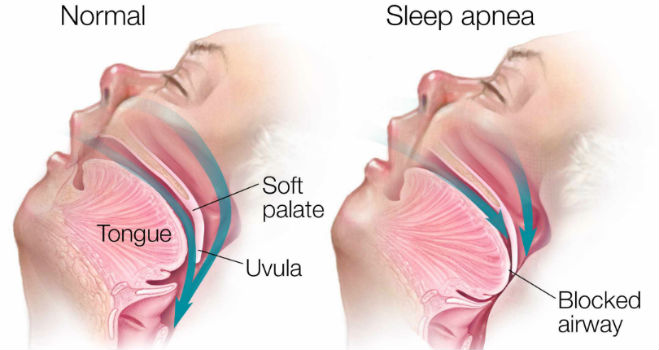
At this time there is very little conclusive research on the effects of cannabis on sleep apnea. Several studies of very small sample groups have shown a positive correlation between THC and reduced symptoms of sleep apnea. However, at the time of this writing, the medical marijuana community has not yet green-lighted cannabis for the treatment of this condition. However, some of sleep apnea’s side effects can potentially be relieved by using weed. Energizing strains may help sufferers combat daytime fatigue and relaxing strains may help with achieving a deeper, more restful sleep.
The Best Weed for Sleep
With the wide variety of marijuana strains available, how do you know which ones will best help you sleep? Here’s an overview of how some of the better-known types of cannabis can affect your sleep.
Sativa or Indica for sleep?
Two of the best-known strains of weed are Sativa and Indica. However, there are many sub-strains under each of these popular blanket terms, as well as hybrids that combine the two. But for the sake of classification, Sativa is generally considered to be energizing and Indica, relaxing. However, it’s possible for the opposite to hold true. What actually matters in selecting a strain of weed – for energy or relaxation – is not whether it’s an Indica or Sativa, but the particular cannabinoid and terpene combinations it possesses.
Q: What is better for sleep, Sativa or Indica?
A: Indica is typically touted as a relaxing strain, and therefore better for sleep than Sativa, which is believed to be more energizing. However, either strain has the potential to help with sleep, depending on the specific chemical compounds it contains.
CBN for sleep
CBN (cannabinol) is a cannabinoid that is just beginning to get more attention from researchers. Preliminary studies suggest that CBN may help users fall and stay asleep. These effects appear to be enhanced when used alongside other calming plants, such as chamomile, lavender, and hops. CBN also appears to have anti-inflammatory, antispasmodic, and mood-boosting qualities, all of which can contribute to the alleviation of some underlying causes of insomnia and other sleep disorders.
CBN has a lot in common, chemically, with THC, the chemical in weed that causes a “high.” As weed ages and oxidizes, THC actually begins to break down and convert itself to CBN. CBN is less potent and will impart a feeling of drowsiness and relaxation, with very little of the high associated with THC. CBN is found in most fresh cannabis in very small amounts, and in higher concentrations in “old” weed.
THC for sleep
THC (tetrahydrocannabinol) is the most well-known and studied cannabinoid. THC is the psychoactive component of weed that causes euphoria, a.k.a the “high.” THC has been shown to generally make users feel drowsy, fall asleep faster, and to wake up fewer times during the night. However, higher doses of THC do have the potential to induce or worsen feelings of anxiety or paranoia. If your sleep problems are caused by anxiety or a condition like PTSD – or your sleep issues themselves are causing anxiety – keeping your THC intake low may be necessary.
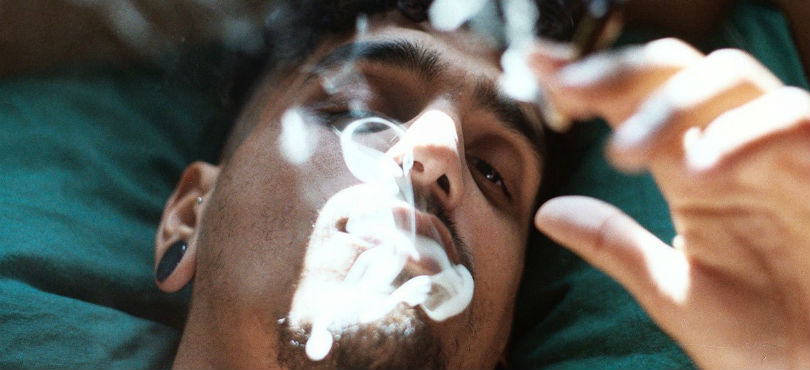
THC has been shown to generally make users feel drowsy, fall asleep faster, and to wake up fewer times during the night.
What research has been done suggests that THC makes you sleepy by boosting levels of a hormone called melatonin, which is responsible for regulating when you fall asleep. This boost appears to peak around 2 hours after using THC. THC also has an effect on levels of dopamine, a hormone related to pleasure, attention, and focus. In low doses, THC can elevate dopamine levels, but in higher doses, it has the opposite effect. Lowered dopamine levels can result in feelings of drowsiness.
In addition to euphoria, some side effects of THC can include dry mouth, red eyes, and increased hunger. The effects of larger doses of THC can carry over into the next day, leaving a lingering sense of drowsiness.
CBD for sleep
CBD (short for cannabidiol), is another cannabinoid that has received a lot of attention in the last few years. A growing amount of research has been done on this compound, showing its potential for a variety of positive effects on the brain and body. CBD works as an analgesic (pain reliever), an anti-inflammatory, an anxiolytic (anxiety reducer), as well as appearing to have neuroprotective and anti-seizure qualities.
A 2018 study conducted by the University of New Mexico found that participants regularly using CBD experienced a significant reduction in symptoms of insomnia. This study also examined the effects of THC. Despite the strong sedative effects of THC, this study found CBD to be the more effective of the two against a wider range of symptoms associated with insomnia. Another study, conducted in Brazil in 2019, showed that CBD did not appear to have any negative effects on the sleep-wake cycles of its users.
Interestingly, small doses of CBD actually have an energizing effect, which can help with daytime tiredness caused by a lack of or poor quality of sleep.
At the time of this writing, CBD itself is legal in all 50 U.S. states, regardless of whether you are a medical marijuana patient or not. CBD can be extracted directly from the marijuana plant or made synthetically. Between natural and synthetic, there appears to be little difference in their effect on users.
Q: Which is more effective for sleep, THC or CBD?
A: Whether THC or CBD is more effective for sleep varies from person to person. The dose amount also matters, with both compounds affecting users differently at lower versus higher doses.
A promising alternative
There is still much more research needed to fully understand and best utilize cannabis for insomnia and other sleep disorders. However, scientists are off to a great start in pinpointing the benefits of particular cannabinoids, such as CBD and CBN. As the worldwide political atmosphere continues to lean toward further legalization of marijuana as a medical treatment option, we should see an increase in these types of studies. Cannabis may finally give insomnia sufferers an alternative to dangerously habit-forming “sleeping pills” as their only option for relief.
